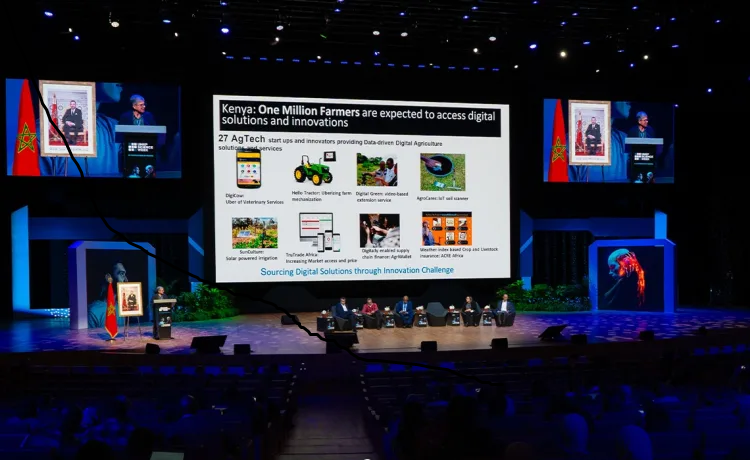Ben Guerir, Morocco – On the fourth day of UM6P’s Science Week, leading voices in agriculture and technology gathered to discuss the opportunities and hurdles shaping digital agriculture across Africa. The forum highlighted the critical role of technology in transforming African agriculture and the urgent need to close the growing digital divide between rural farmers and emerging innovations.
Ken Lohento, a Digital Agriculture specialist with the Food and Agriculture Organization (FAO) of the United Nations, emphasized that while Africa holds great potential for a digital agriculture revolution, only 5% of small-scale farmers in sub-Saharan Africa currently use digital tools to improve their farming practices. This lack of access means millions of farmers are left out of a rapidly evolving agricultural landscape.
“The statistics are alarming, but they also point to a huge opportunity,” Lohento said during a panel on Agritech and the Digital Divide. “We must remember—Africa is not one country. The challenges and solutions vary by region, but we all share the goal of empowering farmers through technology.”
One of the main obstacles is inadequate infrastructure. Around half of Africa’s rural communities lack consistent access to electricity, making it difficult to power devices, connect to the internet, or access digital platforms. Without reliable energy or mobile networks, most farmers cannot benefit from the latest apps, precision farming tools, or real-time weather and market updates that could improve yields and income.
Despite the challenges, Lohento and other speakers pointed to emerging success stories. Mobile platforms offering weather forecasts, market prices, and pest control tips have started to make an impact in parts of East and West Africa. Startups are also offering innovative solutions—from drone-assisted crop monitoring to AI-powered soil analysis—tailored to local conditions.

Science Week participants stressed the importance of public-private collaboration, investment in rural digital infrastructure, and the development of affordable tools in local languages to ensure inclusivity.
“The promise of digital agriculture lies not just in the tools themselves, but in how accessible, affordable, and usable they are for smallholder farmers,” said one panelist from a regional innovation hub.
As Africa’s youth population grows and demand for food rises, experts argue that digital agriculture will be vital for food security, climate resilience, and job creation. But realizing that future requires urgent action to bridge the tech gap and equip farmers with the digital tools they need to thrive.
UM6P’s Science Week continues to foster dialogue and partnerships aimed at turning such insights into action, uniting scientists, policymakers, entrepreneurs, and farmers under one common goal: to ensure no farmer is left behind in Africa’s digital agricultural future.
This is a dynamically generated comment by Hassan Ali.